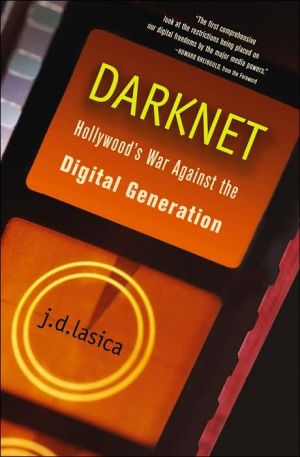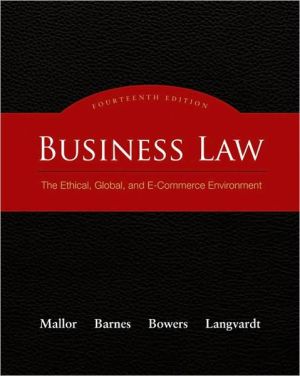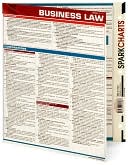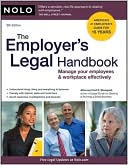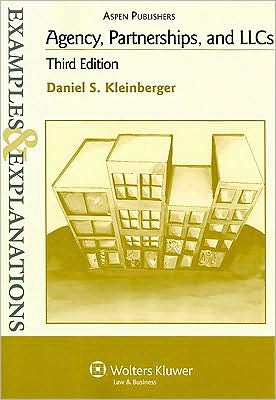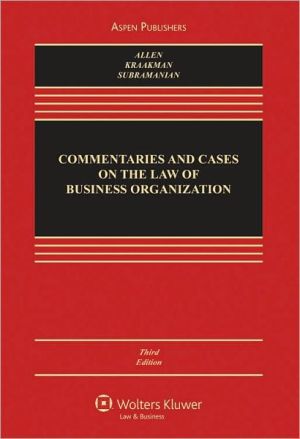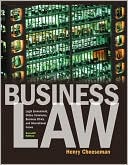Darknet: Hollywood's War Against the Digital Generation
Praise for DARKNET\ "Darknet is both fascinating and important. J.D. Lasica provides a detailed inside view of a culture many Americans are barely aware of, and vividly describes struggles that are already shaping the long-term balance of economic, creative, and ideological power around the world."\ —James Fallows, National Correspondent for The Atlantic Monthly\ "J.D. Lasica skillfully tells the story of the critical battle between free speech and copyright in the age of the Internet. If an...
Search in google:
They hated the VCR. Ditto on the DVD, the iPOD and TiVo. It seems, according to grass-roots media expert Lasica, anything that allows independence of choice of thought, any technology that will reduce the market for what Hollywood has to offer generally gets into the hands of the consumer only because someone else figures he or she can make enough money on sales to ignore what entertainment execs have to say about said technology. He explains how the personal media market actually works, which cool toys Hollywood wants to ban or replace with their own products, and the dangers of allowing corporate control of media of any sort, even that considered pure entertainment. Annotation ©2005 Book News, Inc., Portland, OR Publishers Weekly Rapid-fire advances in technology have transformed home entertainment. Not only can we store hours of television programming and music on hard drives, software has made it easy to create our own movies and songs, splicing and sampling professional-grade material into amateur productions. Entertainment conglomerates are understandably concerned, but in online journalist Lasica's reporting on the culture clash over digital distribution and remixing, corporations are simplistically portrayed as dinosaurs intent on stifling the little guy's creative freedom in order to protect their profit margins. The characterization is not entirely unmerited, but the deck feels unfairly stacked when "Big Entertainment" honchos are juxtaposed with a preacher who illegally copies and downloads movies so he can use short clips for his sermons. Similarly, Lasica infuses the allegedly inevitable triumph of "participatory culture" with a sense of entitlement and anti-corporate bias that he never fully addresses. Lasica's interviews are far-ranging, and he provides a cogent analysis of the broad problems with America's outdated legal framework for dealing with intellectual property rights and the need for the entertainment industry to adapt to new technologies. Too often, though, he falls back to an alarmist tone. With so many other works addressing this issue from both sides, it will be hard for Lasica's book to stand out from the pack. (May 13) Copyright 2005 Reed Business Information.
Click to read or download
Foreword1The personal media revolution72Now playing : Hollywood vs. the digital freedom fighters233Inside the movie underground474When personal and mass media collide675Code warriors876Cool toys Hollywood wants to ban1017A nation of digital felons1278Personal broadcasting1519Edge TV16310The sound of digital music18511Channeling Cole Porter20312Architects of darknet22113Mod Squads : can gamers show us the way?24314Remixing the digital future257
\ From the PublisherAn online journalist and blogger (newmediamusings.com), Lasica has written a book for anyone who has ever downloaded music, movies, or other entertainment products from the Internet. Probed here is the phenomenon of "darknets," networks of people who rely on closed-off digital spaces for the purpose of sharing copyrighted digital material privately with others. As entertainment companies continue to shut down public P2P networks of illegal file sharing such as KaZaA, Lasica speculates that many more darknets will spring up to accommodate the desire for sharing such media. He describes how corporations will continue their attempts to lock down our entertainment devices so they become no more useful than a receptacle for one-way transmission of media products restricted by the companies producing them. This new lockdown culture could result in not being able to copy a song from a CD (legitimately purchased or otherwise), watch a recorded DVD (legitimately purchased or otherwise), or store a copy of a television program for more than a day. In the end, Lasica offers a ten-point "digital culture road map" that can both serve to protect intellectual property and to provide consumers with the ability to express, sample, and share. An absorbing book; highly recommended for most libraries.—Joe Accardi, William Rainey Harper Coll. Lib., Palatine, IL (Library Journal, May 1, 2005)\ Rapid-fire advances in technology have transformed home entertainment. Not only can we store hours of television programming and music on hard drives, software has made it easy to create our own movies and songs, splicing and sampling professional-grade material into amateur productions. Entertainment conglomerates are understandably concerned, but in online journalist Lasica's reporting on the culture clash over digital distribution and remixing, corporations are simplistically portrayed as dinosaurs intent on stifling the little guy's creative freedom in order to protect their profit margins. The characterization is not entirely unmerited, but the deck feels unfairly stacked when "Big Entertainment" honchos are juxtaposed with a preacher who illegally copies and downloads movies so he can use short clips for his sermons. Similarly, Lasica infuses the allegedly inevitable triumph of "participatory culture" with a sense of entitlement and anti-corporate bias that he never fully addresses. Lasica's interviews are far-ranging, and he provides a cogent analysis of the broad problems with America's outdated legal framework for dealing with intellectual property rights and the need for the entertainment industry to adapt to new technologies. Too often, though, he falls back to an alarmist tone. With so many other works addressing this issue from both sides, it will be hard for Lasica's book to stand out from the pack. (May 13) (Publishers Weekly, April 11, 2005)\ \ \ \ \ \ Publishers WeeklyRapid-fire advances in technology have transformed home entertainment. Not only can we store hours of television programming and music on hard drives, software has made it easy to create our own movies and songs, splicing and sampling professional-grade material into amateur productions. Entertainment conglomerates are understandably concerned, but in online journalist Lasica's reporting on the culture clash over digital distribution and remixing, corporations are simplistically portrayed as dinosaurs intent on stifling the little guy's creative freedom in order to protect their profit margins. The characterization is not entirely unmerited, but the deck feels unfairly stacked when "Big Entertainment" honchos are juxtaposed with a preacher who illegally copies and downloads movies so he can use short clips for his sermons. Similarly, Lasica infuses the allegedly inevitable triumph of "participatory culture" with a sense of entitlement and anti-corporate bias that he never fully addresses. Lasica's interviews are far-ranging, and he provides a cogent analysis of the broad problems with America's outdated legal framework for dealing with intellectual property rights and the need for the entertainment industry to adapt to new technologies. Too often, though, he falls back to an alarmist tone. With so many other works addressing this issue from both sides, it will be hard for Lasica's book to stand out from the pack. (May 13) Copyright 2005 Reed Business Information.\ \ \ Library JournalAn online journalist and blogger (newmediamusings.com), Lasica has written a book for anyone who has ever downloaded music, movies, or other entertainment products from the Internet. Probed here is the phenomenon of "darknets," networks of people who rely on closed-off digital spaces for the purpose of sharing copyrighted digital material privately with others. As entertainment companies continue to shut down public P2P networks of illegal file sharing such as KaZaA, Lasica speculates that many more darknets will spring up to accommodate the desire for sharing such media. He describes how corporations will continue their attempts to lock down our entertainment devices so they become no more useful than a receptacle for one-way transmission of media products restricted by the companies producing them. This new lockdown culture could result in not being able to copy a song from a CD (legitimately purchased or otherwise), watch a recorded DVD (legitimately purchased or otherwise), or store a copy of a television program for more than a day. In the end, Lasica offers a ten-point "digital culture road map" that can both serve to protect intellectual property and to provide consumers with the ability to express, sample, and share. An absorbing book; highly recommended for most libraries.-Joe Accardi, William Rainey Harper Coll. Lib., Palatine, IL Copyright 2005 Reed Business Information.\ \ \ \ \ Kirkus ReviewsSprawling account of the battle between corporations and creative individuals over what constitutes the proper use of digital media. Blog journalist Lasica (newmediamusings.com) could have pulled this up-to-the-minute story together with a flurry of phone calls and Web searches, but his reporting from the field gives it sweep and intimacy. The cast of characters is vibrant. Railing against DVD bootleggers, Hollywood lobbyist and ex-MPAA chairman Jack Valenti comes off as the ever-indignant guardian of media companies' right to every last penny. He's but one of the corporate flacks who sound shrilly evangelistic when describing the evils of digital camcorders, file-sharing networks and DVD burners. Lasica's skill at capturing personalities also benefits his recounting of visits with various professors, filmmakers, hippies, hackers, hobbyists and entrepreneurs who have run afoul of American copyright law in one way or another. The author contends that the 1998 Digital Millennium Copyright Act criminalizes harmless behavior, citing law-abiding citizens who have been sued, threatened or fined for copying material for their own personal use. With deep pockets and aggressive lobbyists in Washington, Lasica says, Hollywood is trying to halt the kind of progress that allowed the photocopier, the VCR and the MP3 player into the marketplace. In the chapter "Cool Toys Hollywood Wants to Ban," he describes the next generation of digital goodies that content companies will fight until they're absolutely certain they can profit from them. The cool quotient here suffers slightly from Lasica's tendency to reiterate over and over the same point-the digital age has transformed consumers into producers-inthe breathless tone of a TV newsmagazine. His strength is presenting vivid snapshots of our rapidly changing cultural/technological landscape, not scrounging up metaphors for same. Frequently riveting, occasionally long-winded. Well worth your time, but read fast: it has the unwritten expiration date of a Wired article on tech trends.\ \
